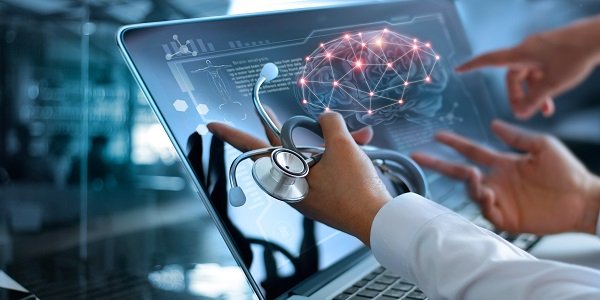Artificial Intelligence (AI) is rapidly transforming industries, and one of the sectors where its impact is most profound is healthcare. The integration of AI technologies into healthcare systems is revolutionizing patient care in ways that were once thought impossible. In this article, we will explore how AI is reshaping the healthcare landscape and improving patient outcomes.
1. Medical Imaging and Diagnostics
AI has made significant strides in medical imaging and diagnostics. Machine learning algorithms can analyze medical images, such as X-rays, CT scans, and MRIs, with remarkable accuracy. Here’s how AI is making a difference:
- Faster Diagnoses: AI can quickly identify anomalies in medical images, expediting the diagnostic process.
- Early Detection: Machine learning models can detect early signs of diseases, allowing for timely interventions.
- Reducing Errors: AI helps reduce the risk of human errors in interpreting complex medical images.
2. Predictive Analytics and Personalized Treatment
AI algorithms can analyze vast amounts of patient data to predict health trends and personalize treatment plans:
- Risk Prediction: AI can identify patients at high risk for certain conditions, enabling preventative care.
- Treatment Optimization: Machine learning models can suggest personalized treatment options based on a patient’s unique health profile.
3. Drug Discovery and Development
The process of drug discovery and development is time-consuming and costly. AI is streamlining this process:
- Virtual Screening: AI models can predict how certain compounds will interact with biological targets, expediting the identification of potential drug candidates.
- Repurposing Existing Drugs: AI algorithms can identify existing drugs that may be repurposed for new treatments.
- Clinical Trial Optimization: AI helps identify suitable candidates for clinical trials, making the process more efficient.
4. Natural Language Processing (NLP) for Medical Records
AI-powered NLP algorithms can extract valuable information from unstructured medical records:
- Data Extraction: NLP can extract critical data from physician notes, allowing for more comprehensive patient profiles.
- Voice Assistants: NLP powers voice assistants that help healthcare providers quickly access patient information and record notes.
5. Robot-Assisted Surgery
Robotic systems guided by AI are assisting surgeons in performing complex procedures:
- Precision: Robots can execute precise movements with minimal invasiveness, reducing patient trauma.
- Telesurgery: AI-enabled robots enable surgeons to perform remote surgery, potentially extending healthcare to underserved areas.
6. Predictive Maintenance for Medical Equipment
AI is being used to predict when medical equipment might fail:
- Preventative Maintenance: Predictive maintenance ensures that critical medical devices are always in working order.
- Reduced Downtime: Predicting failures in advance reduces downtime, ensuring patient care is not disrupted.
7. Chatbots and Virtual Health Assistants
AI-powered chatbots and virtual assistants are becoming essential tools for healthcare providers:
- Patient Interaction: Chatbots can provide patients with immediate answers to questions and schedule appointments.
- Reduced Workload: Virtual assistants can help healthcare providers manage administrative tasks, reducing their workload.
8. Data Security and Privacy
AI is crucial for ensuring data security and patient privacy:
- Security Monitoring: AI algorithms can continuously monitor network traffic for unusual patterns, helping to detect and prevent data breaches.
- Patient Data Privacy: AI systems help in de-identifying patient data, preserving privacy while making data available for research.
Challenges and Ethical Considerations
While AI offers tremendous promise in healthcare, there are challenges and ethical considerations:
- Data Quality: AI’s accuracy depends on the quality and diversity of data. Biased data can lead to biased AI models.
- Regulatory Compliance: Healthcare AI must adhere to strict regulatory standards to ensure patient safety and data privacy.
- Patient Trust: Building patient trust in AI technologies is crucial for their widespread adoption.
Conclusion
AI is revolutionizing patient care in the healthcare industry. From medical imaging and diagnostics to drug discovery, predictive analytics, and robotic surgery, AI technologies are enhancing the quality of care, improving patient outcomes, and making healthcare more efficient. However, it’s important to address challenges and ethical considerations to ensure that AI in healthcare continues to evolve in a responsible and patient-centric manner. As AI technologies continue to advance, they will play an increasingly vital role in the future of healthcare.





